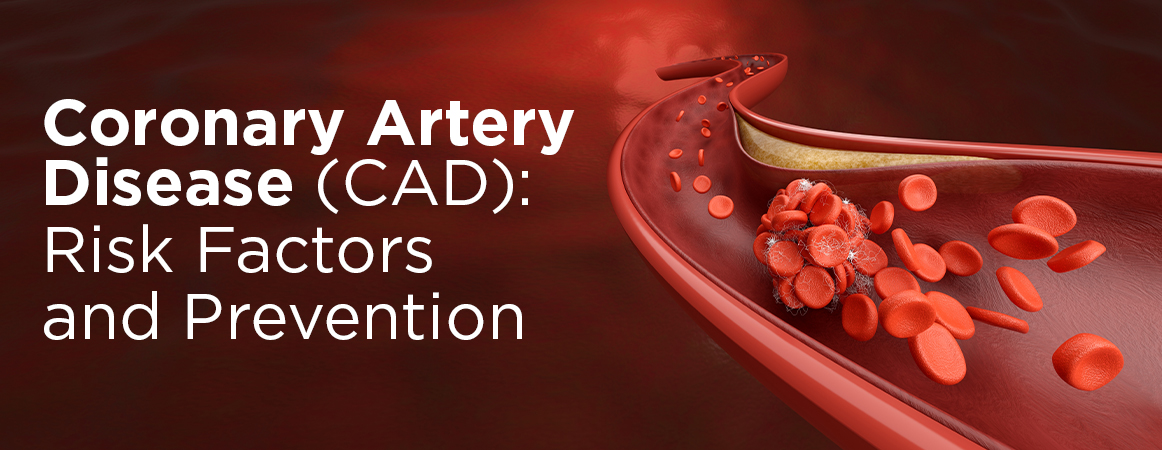Coronary Artery Disease (CAD): Risk Factors and Prevention
Coronary Artery Disease (CAD) stands as a prevalent cardiovascular condition, posing a significant threat to heart health worldwide. Recognizing the risk factors and adopting preventive measures are vital steps in mitigating the impact of CAD. In this article, we explore the various risk factors associated with CAD and delve into effective preventive strategies. Accessing specialized care from a cardiology hospital in Karachi and consulting top cardiologists in Karachi play crucial roles in managing and preventing CAD.
Understanding Coronary Artery Disease (CAD):
Coronary Artery Disease is a condition where the blood vessels supplying oxygen and nutrients to the heart muscle become narrowed or blocked. This restriction can lead to chest pain, heart attacks, and other serious cardiovascular events.
Risk Factors for CAD:
1. Age and Gender:
Advancing age is a significant risk factor for CAD, with the likelihood increasing as individuals grow older. Men generally face a higher risk than premenopausal women, although the risk becomes comparable after menopause.
2. Family History:
A family history of CAD contributes to an elevated risk. Genetic factors can influence cholesterol levels, blood pressure, and other variables that impact heart health.
3. High Blood Pressure (Hypertension):
Hypertension places extra strain on the heart and arteries, increasing the risk of CAD. Regular monitoring and management of blood pressure are crucial in preventing complications.
4. High Cholesterol Levels:
Elevated levels of LDL (“bad”) cholesterol and low levels of HDL (“good”) cholesterol are associated with a higher risk of CAD. Controlling cholesterol through diet, exercise, and medications can mitigate this risk.
5. Diabetes:
Individuals with diabetes have an increased likelihood of developing CAD. Effective diabetes management, including blood sugar control, is essential in preventing cardiovascular complications.
6. Smoking:
Smoking damages blood vessels, accelerates the development of atherosclerosis (hardening of the arteries), and significantly raises the risk of CAD. Quitting smoking is a crucial step in CAD prevention.
7. Obesity and Sedentary Lifestyle:
Obesity and a sedentary lifestyle contribute to multiple risk factors, including hypertension, diabetes, and high cholesterol. Regular exercise and maintaining a healthy weight are integral to CAD prevention.
Preventive Lifestyle Measures:
1. Healthy Diet:
Adopting a heart-healthy diet rich in fruits, vegetables, whole grains, and lean proteins can lower the risk of CAD. Limiting saturated and trans fats, sodium, and refined sugars is crucial.
2. Regular Exercise:
Frequent exercise enhances cardiovascular health overall and strengthens the heart. Aim for at least 150 minutes of moderate-intensity exercise per week.
3. Smoking Cessation:
Quitting smoking is one of the most impactful steps individuals can take to reduce their risk of CAD. The benefits of quitting extend to overall heart health and well-being.
4. Quit Alcohol Consumption:
Excessive alcohol intake can contribute to health issues. It’s essential to limit alcohol consumption within recommended guidelines.
5. Regular Health Check-ups:
Regular health check-ups, including cardiovascular assessments, are crucial in identifying risk factors early on. Consulting top cardiologists in Karachi ensures expert evaluation and personalized advice on preventive measures.
Accessing Specialized Care:
- Cardiology Hospital in Karachi: Specialized cardiology hospitals in Karachi are equipped with advanced diagnostic tools and experienced medical professionals. Regular check-ups at MMI Cardio Hospital, Karachi allow for early detection of potential issues and tailored preventive strategies.
- Top Cardiologist in Karachi: Seeking guidance from top cardiologists in Karachi is imperative for comprehensive cardiovascular care. These specialists offer expertise in risk assessment, diagnostic procedures, and personalized preventive plans.
Medication and Intervention:
In some cases, medications may be prescribed to manage specific risk factors such as hypertension or high cholesterol. Interventional procedures, such as angioplasty or stent placement, may be recommended in more advanced cases of CAD.
Conclusion:
Coronary Artery Disease is a formidable health concern, but understanding its risk factors and embracing preventive measures can significantly reduce its impact. Regular health check-ups, lifestyle modifications, and access to specialized care from MMI Cardiac Hospital, Karachi, with guidance from top cardiologists, form a robust strategy for managing and preventing CAD. By taking proactive steps, individuals can safeguard their heart health and enjoy a life free from the constraints of cardiovascular complications.


